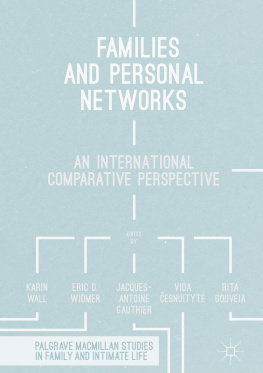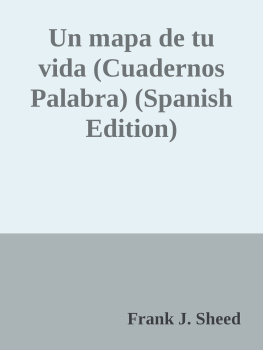This book presents original research findings on personal networks and life trajectories in three European countries in the early twenty-first century : Portugal , Lithuania , and Switzerland . Its underlying argument is that personal ties, at first sight private and explained by lifestyle preferences or personality, depend on a series of social conditions which shape them beyond the volition of individuals. Personal networks go hand in hand, the book stresses, with individual trajectories within a system constrained by the opportunity structures and normative orientations of each society . Such structures and orientations are the product of national histories, the roots of which go deep into the past. Within countries, classical stratification principles such as those associated with gender and social class, but also with the life cycle and generations, embedded within life course experiences, are expected to make a significant difference to personal networks.
Why do some individuals develop relationships with friends and have no or very few significant family members ? Why does the sociability of others concentrate on family members and kin ? Why do some have only one or two significant alters while others have large personal networks? Why are some networks highly connected and others more sparsely organized? What kinds of relational resources or social capital do they provide? To understand how a variety of social conditions play out in shaping personal networks, the book draws on data from the national surveys Life Trajectories and Social Networks conducted between 2009 and 2010 in Portugal , in 2011 in Switzerland , and in 2012 in Lithuania .
Setting the Scene: Portugal , Lithuania , and Switzerland
Portugal , Lithuania , and Switzerland do not come to mind as obvious choices for a comparative book. Most comparative studies examine European nations which are more powerful and central. Personal connections of the researchers involved go some way to explaining this selection of countries, and it would be untrue to stress some master theoretical basis for it. In the three countries, a window of opportunities existed for a short period of time , between 2009 and 2012, for funding large data collections on personal networks. Due to the economic crisis and the consequent budgetary cuts to the social sciences, this endeavour could not have taken place later on, at least in two of the three participating countries.
Gathering systematic information on personal networks in these three countries has nonetheless had some advantages. In recent decades the upper and upper middle classes in Europe have developed a new normative model of relationships, broadly corresponding to the ideal type of the pure relationship (Giddens ).
The European Union, as an emerging supranational entity wishing to mobilize large segments of its middle and upper classes into its project , has sought to promote a common culture, by seeking to foster exchange and a joint identity between individuals of all participating countries (Favell and Guiraudon ) rather than a society of groups is at the forefront of the European societal project. The development of a joint culture stressing individual rights and personal development in family and other intimate relationships makes sense within a project of political and economic unification across a continent.
The idea stressed in this book, however, is that personal relationships in Portugal , Lithuania , and Switzerland follow this normative model in different ways, because of the structural conditions characterizing these countries (Musial ). Such conditions are the products of separate national histories which cannot be altered in a few years or even in a few decades. For pure relationships to become a reality , several conditions of social development are needed, and these are unequally present in the three countries.
First, the collective realization of pure relationships is only possible if the society has achieved a certain level of economic development and wealth , as it entails additional costs compared to more classical understandings of personal relationships. Portugal and Lithuania are amongst the poorer nations of Europe and were strongly affected by the economic crisis, whereas Switzerland stands among the richest, making their comparison especially compelling.
Secondly, the model of pure relationships is easier to adopt when higher education has gained prominence. In Giddens view, it indeed demands a high level of self- reflexivity , which often comes with an increase in schooling. Lithuania has a large proportion of people with a university degree , whereas in Switzerland this number is low, Portugal lying in between.
Thirdly, people should be well disposed towards the values of modernity and the European social model focusing on welfare provision , educational expansion , a knowledge society , and formal equality , if they are to fulfil the EUs normative project . Portugal and Lithuania have only a short history as fully fledged democratic European countries, both having recent experience of dictatorship. In a not so distant past, the family was regarded in Lithuania as a stronghold against the intrusion of the communist state . In Portugal, family was sanctified by the fascist dictatorship as a major institution of social control and support . In Switzerland , family has been considered something mostly private, to which the State should not pay too much attention, either in terms of support or of regulation (Sapin et al. ). Those distinct relationships between State and Family, which are rooted in the countries political and social histories, may have led to quite distinct attitudes to the principles of blood and alliance and to the value of individual autonomy in the organization of personal relationships. These distinct orientations towards the family and individualization may have been strengthened by the orientation developed within each country towards the EU. In Portugal, large segments of the population have seen progressive integration in Europe as a decisive way of cutting ties with a somewhat depressing traditionalism in society, while ensuring access to the benefits of fully fledged modernity. In Lithuania, EU membership has been valued for the protection it affords against interference from its great eastern neighbour as well as for access to Western markets. In both countries, the models put forward by the European elites are regarded as social markers which clearly distinguish pre-democratic times and the present. In Switzerland, such a distinction is not prevalent, as the country did not experience dictatorship in the twentieth century . In addition, Switzerland rejected EU membership in a referendum in the early 1990s, and the EU project has been regarded with a sceptical eye by a large number of its citizens. In other words, the orientation of the Swiss towards the EU and its normative models is one of concern, and the EU is in no way seen as the sole pathway towards a modern future. In Switzerland, one may therefore reject normative models such as the pure relationship model without being suspected of longing for authoritarian conservative social or political models of the past. Based on this set of highly distinct historical pathways, structural conditions, and collective orientations of the three countries, we may expect personal networks to vary across them, with major consequences for the social capital available to the residents of each country.










